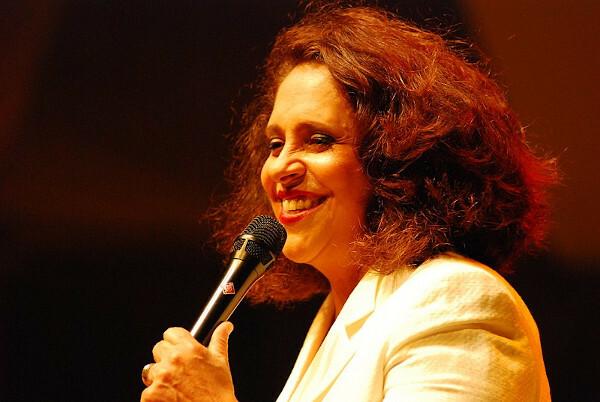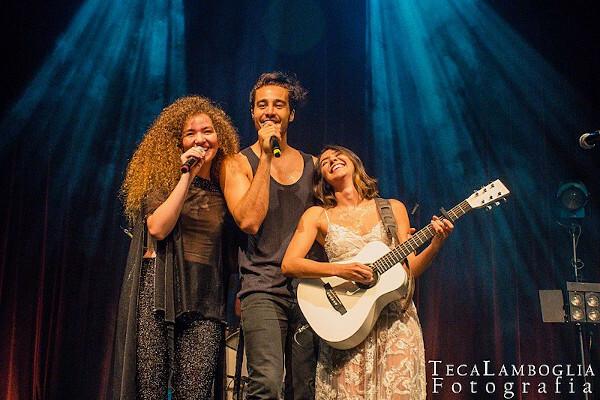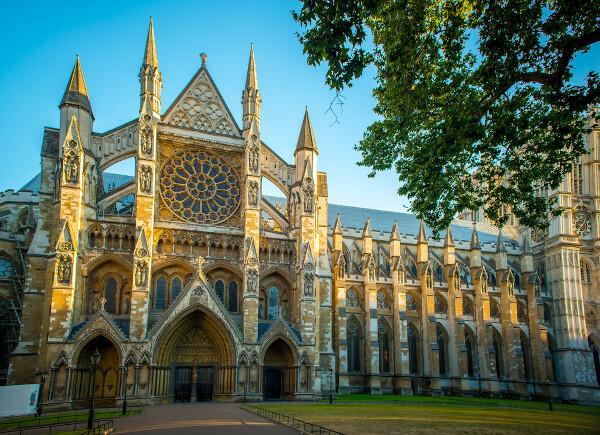Meet Yara! The artificial intelligence of Brasil Escola! It corrects essays in the Enem standard and answers questions about different disciplines quickly and free of charge!
A Brazilian popular music (MPB) is a musical genre that emerged in Brazil in the 1960s, during the military dictatorship. It is quite diverse and has changed over the decades. It brings together different genres and regions of the country in its artistic manifestations.
Read too:Sertanejo — one of the most traditional musical genres in Brazil
Topics of this article
- 1 - Some of the main artists of MPB
- 2 - Some of the main MPB songs
- 3 - How did MPB come about?
- 4 - MPB and the Military Dictatorship
- 5 - Characteristics of MPB
- 6 - Brazilian music in the 1980s and 1990s
- 7 - MPB currently
- 8 - Facts about MPB
Some of the main artists of MPB
Alceu Valença
Belchior
Caetano Veloso
cazuza
Chico Buarque
Clara Nunes
djavan
Elba Ramalho
Elis Regina
Elza Soares
Fafá de Belem
Fagner
Gal Costa
Gilberto Gil
Maria Bethania
Milton Nascimento
Raul Seixas
Rita Lee
Zé Ramalho
Some of the main MPB songs
“Joy, joy” (1968), Caetano Veloso
“Cálice” (1978), Chico Buarque
“Hello, hello marciano” (1980), Elis Regina
“Vermelho” (1996), Fafá de Belém
“Carcará” (1965), Maria Bethânia
“Exaggerated” (1985), Cazuza
Do not stop now... There's more after the publicity ;)
How did MPB come about?
The emergence of MPB is intrinsically connected with the military coup and the weakening of bossa nova as a hegemonic musical movement. The starting point of MPB was the performance of the singer Elis Regina at the 1st Festival of Brazilian Popular Music, in 1965. The singer performed the song “Arrastão”, composed by Edu Lobo and Vinícius de Moraes.
It is also at this time that the tropicalia (or tropicalism), an artistic movement of the second half of the 1960s that profoundly marked different forms of artistic expression, such as music, cinema, theater, poetry and the visual arts.
the musical genre born as a way of reaffirming and valuing the music produced in Brazil. Thus, foreign genres and characteristics, especially those from the United States, were seen as negative in the genre — this was the case of the electric guitar, which in the early years of MPB was not used in songs.
MPB and the Military Dictatorship
Valuing Brazil and its Brazilian qualities went beyond musical chords, it was a political act. In its early years, poetry and the artistic positioning of MPB were linked to Brazil at the time. Therefore, artists, songs, concerts and even entire works denounced and fought the military repression of the lead years.
Nonetheless, with the Unconstitutional Act 5 (AI-5), the repression and censorship of the Brazilian Military Dictatorship made demonstrations more subtle, with ironies and metaphors. This was the case with the song “Cálice”, composed by Chico Buarque and Gilberto Gil. Check out the letter below.
Cup
Father, take this cup away from me
Father, take this cup away from me
Father, take this cup away from me
Of blood red wine
Father, take this cup away from me
Father, take this cup away from me
Father, take this cup away from me
Of blood red wine
How to drink this bitter drink?
Swallow the pain, swallow the toil?
Even if the mouth is shut, the chest remains
Silence in the city is not heard
What is the use of being a saint's son?
It would be better to be the son of another
Another less dead reality
So many lies, so much brute force
Father, take this cup away from me
Father, take this cup away from me
Father, take this cup away from me
Of blood red wine
How hard it is to wake up in silence
If in the dead of night I get hurt
I want to launch an inhuman scream
What a way to be heard
All this silence stuns me
Stunned I remain aware
In the stands for any time
See the monster emerge from the pond
Father, take this cup away from me
Father, take this cup away from me
Father, take this cup away from me
Of blood red wine
Sows are too fat to walk anymore
The knife has been used so much that it no longer cuts
How difficult it is, father, to open the door
That word stuck in the throat
This Homeric drunk in the world
What's the use of having good will?
Even if the chest is silent, the head remains
From the downtown drunks
Father, take this cup away from me
Father, take this cup away from me
Father, take this cup away from me
Of blood red wine
Maybe the world is not small
Don't let life be a fait accompli
I want to invent my own sin
I want to die from my own poison
I want to lose your mind
My head lose your mind
I want to smell diesel fumes
Get drunk until someone forgets me |1|
Characteristics of MPB
Besides the strong presence of protests and criticism of the political situation in Brazil, MPB is also and was marked by the appreciation of the country's diverse musical expressions. Thus, unlike national genres such as bossa nova, which had well-defined sound, visual and even vocal characteristics, MPB was marked by diversity.
In Brazilian popular music we find mixtures of genres and musical expressions from all over the country, with indigenous, African and European origins. Genres such as samba and bossa nova itself influenced the construction of an “identity” for MPB. The artists and their regionalities too.
Already in the 1970s, the various artists that emerged in the country helped to shape what would become MPB. Bahians Gal Costa, Maria Bethânia, Caetano Veloso and Gilberto Gil are some of the main names in the genre and brought influences from Bahia to MPB.

Still in the Northeast, big names appear, like Djavan, from Alagoas; Belchior and Fagner, from Ceará; Elba Ramalho, from Paraíba; and Alceu Valença, from Pernambuco.
Representing and adding sounds from the North, we have Fafá de Belém, from Pará. In the Southeast, Clara Nunes, from Minas Gerais; Elza Soares and Milton Nascimento, from Rio de Janeiro. The diversity of cultures, voices and expressions is one of the main characteristics of MPB. It was precisely this feature that kept it alive over the years.
It is important to highlight that most of these artists were not “exclusive” MPB musicians. Elza Soares, for example, stood out in samba-jazz, soul rock and soul, while Alcione is one of the great icons of samba.
Brazilian music in the 1980s and 1990s
The new elements, genres and artists that emerged greatly influenced MPB. For example, in the 1980s and 1990s, national rock takes on great strength in the country. It is in this scenario that groups such as Legião Urbana, Kid Abelha, Titãs, Ira! and Red Baron. Of the solo artists, Cazuza, Lulu Santos, Cássia Eller and Marina Lima stand out, in addition to the well-known Rita Lee and Raul Seixas.
In the late 1990s and early 2000s, rap and hip-hop became increasingly hegemonic. That's when the Racionais MC's appeared; Gabriel the thinker; and Pavilion 9. All these genres and artists indirectly and directly influence the construction of MPB.
MPB currently

Because it is a genre that renews itself and implements several references in its performance, MPB is still alive and producing several artists. At the end of the last century and beginning of the 2000s, great MPB icons emerged. This was the case of Cássia Eller, Ana Carolina, Seu Jorge, Adriana Calcanhotto, Marisa Monte and the Tribalistas.
The MPB sound of the 2000s continued to be diverse, with a strong presence of samba and pagode; in the cases of Ana Carolina and Seu Jorge, for example, with songs about love and everyday life.
Fast forward to the 2010s, young artists sing about their age and social moment. That's when artists like Mallu Magalhães, Maria Gadú, Maria Rita, Tiago Iorc, Duda Beat, Letrux, Johnny Hooker, Anavitória and Liniker appear. References range from samba to electronic music, moving from piseiro to hip-hop.
See too: Funk — one of the main music genres today
Facts about MPB
There is a great controversy about the name “Brazilian popular music”. This is because there are those who defend MPB as a musical genre that emerged in the 1960s. However, there are those who argue that all music produced in Brazil, by Brazilians, is Brazilian popular music.
Brazilian Popular Music Day is celebrated on October 17. The date was established on May 9, 2012, as a tribute to the composer, pianist and conductor Chiquinha Gonzaga.
In 1977, singer Rita Lee made a song that mocked her professional colleagues: “Arrombou a festa”. With a lot of humor, Rita asked what happened to Brazilian popular music. In the song, Rita quotes big names in Brazilian music and the appeal for the commercial success of the time. See an excerpt:
A certain Raul Seixas comes from a flying saucer
And Gil is redoing his baby with a lot of love
Ten years and Roberto hasn't changed profession
At the big party, he still has his big car
I stopped to search
Oh, oh, my God, what happened
With Brazilian popular music?
They all mean it, they all mean it
But this serious one seems like a joke to me |2|
Grades
|1| BUARQUE, Chico. Cup. Composition: Chico Buarque / Gilberto Gil. Letters. Available in: https://www.letras.mus.br/chico-buarque/45121/.
|2| Lee, Rita. broke into the party. Composition: Paulo Coelho / Rita Lee. Letters. Available in: https://www.letras.mus.br/rita-lee/48497/.
image credits
[1] A.PAES / Shutterstock
[2] Silvio Tanaka / Virada Cultural / Wikimedia Commons (reproduction)
[3] Teca Lamboglia / Wikimedia Commons (reproduction)
By Miguel Souza
Journalist
Click here to learn about the origin of the Bossa Nova musical genre and learn about its historical context, its main musicians and some of its songs.
Click here to learn more about the life and career of Caetano Veloso, one of the main names in Brazilian music.
Check out details of the life and work of Chico Buarque, MPB icon and one of the greatest Brazilian artists of all time.
Click here and learn about the origin of Elis Regina, one of the greatest singers in Brazil. Know details about her career and her personal life.
Click on the link to learn more about Gal Costa's life. Find out about her origins. Check out highlights of his music career and private life.
Maria Bethânia, biography of Maria Bethânia, maria bethania tempo, maria bethania cantor, singer maria bethania.
Learn details about the life and career of Rita Lee, one of Brazil's leading singers and songwriters, famous for her title of “Queen of Brazilian Rock”.
The movement that caused controversy in the 1960s.


